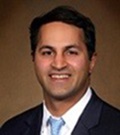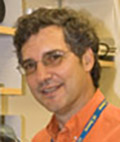In The News
Welcome to the Department of Neurology
| Faculty | Article |
 |
CPR News, Dec. 31, 2024 |
 |
Personalized drug cocktails may reverse Alzheimer’s WISHTV (Indianapolis), Dec. 27, 2024 |
 |
Autoimmune Encephalitis Is Rare, Hard to Diagnose, and No Joke UCHealth Today, Dec. 23, 2024 |
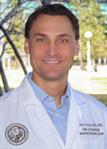 |
Vyalev Pump Eases ‘Off’ Periods for Advanced Parkinson’s Patients UCHealth Today, Dec 23, 2024Advances in Deep Brain Stimulation May Reduce Parkinson’s Disease Symptoms CU Anschutz Today, Dec 16, 2024 |
 |
Women’s Cardiovascular Disease Risk Calculations Barely Budge When Sex-Specific Variables Are Included |
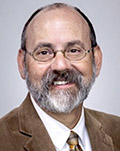 |
Donepezil Found Effective for Improving Memory After Traumatic Brain Injury Psychiatric News, Dec 4, 2024 |
 |
CU Anschutz Scientists Advance Immunotherapy
CU Anschutz Today, Nov 20, 2024 |
 |
Silent Intruder: How the Cold Sore Virus Maps its Way Through the Brain CU Anschutz Today, Oct 30, 2024 |
 |
‘A Place to Dream’: CU Anschutz Continues on its Record-Breaking Course |
 |
Alzheimer’s disease and genetics: A complicated relationship
UCHealth Today, Sept 19, 2024 |
 |
Céline Dion’s Doctor Keeps Eye on the Prize: Advancing Medicine
CU Anschutz Today, Sept 12, 2024 Neurology Focuses on New Therapies for Rare Disorders Health Science Radio, Episode 8 (25 min. audio) |
 |
How rheumatoid arthritis and Down syndrome are helping researchers find treatments for Alzheimer’s
Clinical trials hope to curb and reverse Alzheimer's
Colorado hopes to raise awareness of dementia, start conversations, with new campaign |
 |
Understanding brain cancer, tumors and treatments
UCHealth Today, August 20, 2025 |
 |
What you need to know about Valley fever after 19 infected at California music festival
Eastern Equine Encephalitis Has Re-Emerged: What Neurologists Should Know
Where is deadly mosquito virus EEE spreading in US? 5 states reporting cases
West Nile symptoms: What to know about the virus that hospitalized Dr. Anthony Fauci
Claim of link between mpox and COVID-19 vaccines is nonsense | Fact check West Nile Virus season returns – A medical epidemiologist explains how it’s transmitted and how you can avoid it |
 |
Colorado to Become Center for Stiff Person Syndrome Treatment with Donation from Celine Dion The Celine Dion Foundation of $2 million endows a chairship in autoimmune neurology, with Dr. Amanda Piquet, as the inaugural chair. CPR News, August 7, 2024 |
 |
FDA Grants Regenerative Medicine Advanced Therapy Designation to Kyverna’s KYV-101 for Refractory Stiff-Person Syndrome
|
 |
‘Game of Thrones’ Study Offers Insights Into a Little-Understood Brain Disorder
|
 |
Scientists Identify Key Protein Behind Spread of Shingles Virus For the first time, researchers identify the mechanism that allows the varicella zoster virus to spread far from the infection site. Dr. Christy Niemeyer is first author of the team’s paper, featured as the “Editor’s Pick” in the Journal of Virology. CU Anschutz Today, July 25, 2024 |
 |
Plague and Other Deadly Animal-Related Diseases Remain a Threat The public health system has reduced cases dramatically, but prevention is still paramount, noted Daniel Pastula, MD, MHS . CU Anschutz Today, July 24, 2024 |
 |
First UCHealth Patient Receives New Treatment for Alzheimer’s
UCHealth Today, June 27, 2024 |
 |
CU Anschutz gets $2 million gift from Céline Dion Foundation for autoimmune disease research
|
 |
Colorado doctors warning of West Nile virus, after state saw biggest outbreak in the country last year
|
 |
Colorado doctor has treated Celine Dion’s stiff person syndrome for 2 years |
 |
Safety and Pharmacokinetic Profile of Ocrelizumab in Pediatric MS Mirrors Adult Population
|
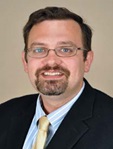 |
Ofatumumab Positively Impacts Neurofilament Light, NEDA Status Regardless of Race or Ethnic Background |
 |
A 15-Year-Old Hockey Player with MS May Never Experience a Symptom, Thanks to Colorado Research
|
 |
But How Does the Worm Get in Your Brain?
The New York Times, May 8, 2024 |
 |
‘Top Chef’ Contestant Sheds Light on Kennedy Disease Robert Pratt, MD explains the rare neurodegenerative disease. CU Anschutz Today, April 17, 2024 |
 |
IV Ketamine Promising for Severe Refractory Headache in Children In a retrospective chart review, IV ketamine led to in a 50% reduction in pain at discharge, with “nearly two-thirds” of patients having no recurrence within 30 days, lead investigator Scott Rosenthal, MD, noted. Rosenthal reported the findings (Abstract S20.010) on April 15 at the American Academy of Neurology 2024 annual meeting. Medscape, April 16, 2024 |
 |
Cenobamate’s Efficacy in Drug-Resistant Epilepsy These results were presented at the 2024 American Academy of Neurology (AAN) Annual Meeting, held April 13-18, in Denver, Colorado, by lead author Jacob Pellinen, MD [Assistant Professor of Neurology at CU School of Medicine] and colleagues. Neurology Live, April 14, 2024 |
 |
Nontraditional Risk Factors Play an Outsized Role in Young Adult Stroke Risk |
 |
Lab Probes Aphasia, a Language Disorder That Struck Bruce Willis, Wendy Williams |
 |
Migraine Devices: TikTok Trends or Effective Tools? |
 |
‘No Surprises’ as Ozanimod Holds up in RMS Extension Trial |
 |
Redefining Relapse in Efficacy Measures for Multiple Sclerosis Treatments: Stephen Krieger, MD; Enrique Alvarez, MD, PhD |
 |
Want to Keep Your Brain Healthy and Your Memory Sharp? There’s One Blood Test You Should Get ASAP |
 |
Acting Out Dreams Can Signal a Serious Disorder |
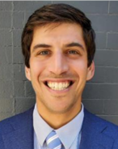 |
A Look Inside Brain-Computer Interfaces and the Potential of Neuralink Daniel Kramer, MD, Assistant Professor of Neurosurgery, is a neurosurgeon and neuroscientist that interprets impulses from the brain to better understand disease processes. He is developing a brain-computer interface program at the University of Colorado School of Medicine focused on sensorimotor restoration. |
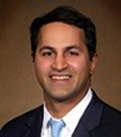 |
Drug-Resistant Epilepsy in Adults: A Treatment Update
|
 |
Illinois Woman Sheds Light on Experience with Stiff Person Syndrome as Celine Dion's Battle Raises Awareness |
 |
Gene Therapy Advances Are a Game Changer for Some Neuromuscular Disorders: The Future Has Arrived
|
 |
Recognizing When Someone Is Having a Seizure – And How You Can Help During Those First Critical Moments
|
 |
The Evolving Landscape of Treatments for Multiple Sclerosis in 2024: Enrique Alvarez, MD, PhD |
 |
UCHealth Launches a New Mobile Stroke Treatment Unit That Will Operate Full Time in Colorado Springs |
 |
Alzheimer’s Study Finds Potential Immune System Link, Mostly in Women
|
 |
Alzheimer’s Study Finds Potential Immune System Link, Mostly in Women
|
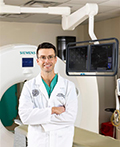 |
‘Low Tech’ Innovation Device for Dynamic CT Myelography Improves Care for CSF Leak Patients |
 |
The 5 Most Common Migraine-Triggering Foods And Drinks
“A migraine trigger refers to any external or internal factor that contributes to the onset of migraine symptoms,” said Danielle Wilhour, Assistant Professor of Neurology and migraine specialist at UCHealth Neurosciences Center. “Combining multiple factors is probably a more potent influence.” HuffPost, Jan 8, 2024 |
 |
Neurology Drugs Are Getting Better—and More Expensive—With More Prior Authorization Hassles
|
| Faculty | Article |
 | Can a Vision Test Detect a Brain Disease? |
 | Brain Cancer Patient Recruits the CU Cancer Center for the Fight of His Life |
 | Musical Bedicine for Parkinson’s Disease “When you’re sleeping, your frequencies of your brain are actually slowing down so that you can get peaceful. You can get rested,” said Isabelle Buard, PhD, Assistant Research Professor of Neurology. “When you do something more intense — you write, you think, you hear, you move — those are actually generic bursts of high frequency oscillations." Drug Discovery News, Nov. 15, 2023 |
 | Should MS Patients Stop Treatment as They Age? |
 | 6 Ways to Reduce Brain Fog and Improve Mental Clarity “Brain fog isn’t a medical diagnosis,” Danielle Wilhour, an assistant professor in neurology at the University of Colorado School of Medicine, told Everyday Health. “Rather, it’s a casual, or lay, term used to describe an umbrella of cognitive symptoms.” Deseret News (Salt Lake City), Oct. 30, 2023 |
 | Medicare's Drug Price Negotiation Program Is Underway: What Does It Mean for Neurologists? |
 | Parkinson’s Disease and Sleep: A Complicated Pairing |
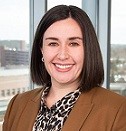 | How Air Pollution May Influence Brain Health |
 | Deadly, Treatment-Resistant Fungus Sees Notable Rise CU Anschutz Today, October 2, 2023 |
 | Five Questions for Maureen Stabio |
 | What Is Stiff Person Syndrome and Can You Still Have Sex? However, the exact incidence of SPS is unknown, according to Dr. Amanda Piquet, Director of autoimmune neurology at the University of Colorado School of Medicine. “We don’t have large-scale epidemiology studies needed to know the true prevalence of the disease,” she said. “It’s a very rare disease that often goes unrecognized and misdiagnosed.” Giddy, Sept. 11, 2023 |
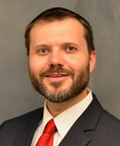 | 'A Fitness Tracker for Brain Health': Headband Seeks Early Signs of Alzheimer’s During Sleep |
| How well does Leqembi work to fight Alzheimer’s?
|
 | Groundbreaking Stroke Study Seeks Ways to Keep Brain Cells Alive
|
 | West Nile Infections Rising in the US
|
 | TBI Increases Mental Health Diagnoses, Time to Suicide |
 | Do Tick Bites Cause a Red Meat Allergy? What to Know About The Rise of Alpha Gal Syndrome
Health, Aug. 9, 2023 |
 | Women Get Far More Migraines Than Men –Neurologist Danielle Wilhour, MD, Explains Why, and What Brings Relief
About 800 million people worldwide get migraine headaches ; in the U.S. alone, about 39 million , or approximately 12% of the population, have them regularly. And most of these people are women. More than three times as many women as compared to men get migraines. For women ages 18 to 49, migraine is the leading cause of disability throughout the world . The Conversation, August 9, 2023 |
| What Is Prosopagnosia? An Odd Condition That Can Steal Your Face
|
 | Stem Cell Medical Tourism Leads to Meningitis in MS Patient In October 2022, the woman in her 30s traveled to Baja California, Mexico, and received two lumbar punctures of the stem cell product as a “treatment” for MS after researching the clinic online, Dr. Daniel Pastula, of the University of Colorado School of Medicine and the Colorado School of Public Health, and colleagues (Drs. Wolf, Money, Piquet, Tyler, et al.) reported in
Emerging Infectious Diseases
. |
 | WHO report on deadly virus among babies in 3 countries has U.S. doctors on edge That’s why it’s critical for pediatricians to be on the lookout for the potential for severe illness in newborns, rather than “be behind the eight ball when things pick up and get out of control,” said Dr. Kevin
Messacar, pediatric infectious disease specialist at Children’s Hospital Colorado and Associate Professor of Pediatrics and Neurology at CU School of Medicine. |
 | IV ketamine reduced pain by 50% in pediatric patients with refractory headache “Patients with severe and refractory headaches often have few options for treatment despite ongoing pain and significant disability,” Dr. Scott Rosenthal, Neurology Headache Medicine Fellow at University of Colorado Anschutz Medical Campus, and colleagues wrote. “Ketamine has emerged as a potential therapeutic option and had demonstrated benefit in other chronic pain syndromes.” Healio, June 30, 2023 |
 | Stopping DMTs a ‘Reasonable Option’ for Some Older MS Patients “This study will aid decision-making when health care providers and people with multiple sclerosis discuss potential disease-modifying therapy discontinuation as patients age,” Dr. John Corboy, Professor of Neurology and the trial’s lead researcher, said in a press release . Multiple Sclerosis News Today, June 26, 2023 |
 | Why Do Women Suffer Migraines More Frequently and Severely Than Men? Women’s overall quality of life can be significantly impacted by migraines. During National Migraine Awareness Month, Danielle Wilhour, MD, Assistant Professor in the Department of Neurology, describes how women and men experience migraines differently, and proper treatment for them. CU Anschutz Today, June 16, 2023 |
 | Seizures While Driving Highlight Importance of Diagnosis of Epilepsy “Seizures while driving pose substantial risks for those experiencing them and for others on the road,” said study author Jacob Pellinen, MD of the University of Colorado and American Academy of Neurology member. HealthDay, June 9, 2023 |
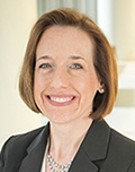 | COVID-19 Severity in Pediatric Patients With MS on B-Cell-Depleting Therapies In a recently published study conducted by lead author Teri Schreiner, MD, MPH and colleagues, B-cell-depleting treatment was associated with a higher risk of COVID-19 infection, higher rates of hospitalization, and ICU admission in pediatric patients with MS (POMS) and related disorders. These findings suggest that these therapies, commonly used in the MS field, come with a higher risk of severe infection. NeurologyLive®, May 18, 2023 |
| Adverse Life Stressors Have a Disproportionate Effect on Many Pregnant Women With Epilepsy “We are overall doing a good job medically managing women with epilepsy during pregnancy, and they are doing well,” said the study’s lead author, Dr. Naveed Chaudhry, assistant professor of neurology at University of Colorado School of Medicine. “But this research suggests that women with epilepsy are having more stress in pregnancy, some of which may be recognized and at least some of it going unnoticed.” Neurology Today, May 18, 2023 |
 | Maine Resident Dies of Rare Tick-Borne Virus as Cases Spread Across U.S. “Most people who are infected have no symptoms and fully recover,” Dr. Daniel Pastula, associate professor of neurology, infectious diseases and epidemiology, previously told Newsweek. “A subset, within one to four weeks develop a pretty bad flu-like illness. And a subset of those people develop Powassan neuroinvasive disease. That’s where we are seeing the severity.” Newsweek, May 18, 2023Here's How to Avoid a Spring Surge of Hungry Ticks CU Anschutz Today, May 18, 2023 |
 | Michael J. Fox Legacy: ‘Time Travel’ or Parkinson’s Cure? Exactly one month before the public release of a documentary on Michael J. Fox and his life with Parkinson’s disease (PD), the actor’s research foundation announced a landmark discovery – a novel test that can biologically diagnose the disease in live patients, even before symptoms emerge. “They’ve had a profound impact,” said Amy Amara, MD, of The Michael J. Fox Foundation ’s influence on PD research worldwide, including at the University of Colorado Anschutz Medical Campus. “It has led to an explosion of findings in the literature,” said Amara, a Parkinson’s researcher and professor of Neurology at the CU School of Medicine . CU Anschutz Today, May 15, 2023 |
 | The Search for Alzheimer’s Therapies: Understanding the Biochemistry of Harmful Plaques in the Brain The University of Colorado School of Medicine research team’s work on Alzheimer’s disease is yielding laboratory insights into the roots of the degenerative brain disease that have leapt to human clinical trials at UCHealth in short order. UCHealth Today, April 5, 2023 |
 | UCHealth offers new more effective medication treatment for stroke patients Tenecteplase is easier to administer – a single, immediate IV push that takes just five seconds, according to Dr. Sharon Poisson, Neurohospitalist and Medical Co-director of the Comprehensive Stroke Program at UCHealth and Associate Professor of Neurology at CU School of Medicine. Greeley Tribune, March 21, 2023 |
 | Understanding Headache Pain and Its Treatment If one searched for an experience shared by nearly everyone, headaches would be an unpleasant standout candidate. Indeed, the government declares headaches “the most common form of pain” in the country and a major reason for missed work and clinic appointments. Dr. Danielle Wilhour (Assistant Professor of Neurology-Headache/Pain Medicine) describes them and discusses treatments. UCHealth Today, March 20, 2023 |
 | What you need to know about Multiple Sclerosis Dr. Anna Shah, Assistant Professor of Neurology who specializes in patients with MS and other related disorders of the nervous system, joined 9News to talk about the disease. 9News, March 17, 2023 |
 | Expert perspectives: The future of Huntington’s disease management and treatment “The three main pillars of management include lifestyle changes, pharmacologic management, and rehabilitation services, such as physical, occupational, and speech therapy,” said Dr. Emily Forbes, director of the Huntington’s Disease Society of American (HDSA) Center of Excellence at the University of Colorado. Medical News Today, March 1, 2023 |
 | Ocrelizumab and Rituximab Demonstrate Similar Safety, Efficacy in Treatment of Multiple Sclerosis Senior investigator Enrique Alvarez, MD, PhD, Associate Professor of Neurology, and colleagues randomly selected patients treated with ocrelizumab (n = 245) and rituximab (n = 182), and observed outcomes such as lab data, relapse history, adverse events (AEs), MRI outcomes, disease history, and patient characteristics. Neurology Live, Feb. 25, 2023 |
 | 7 Tips to Beat Brain Fog, Foster Focus, and Improve Mental Clarity Brain fog isn’t a medical diagnosis. Rather, it’s a casual, or lay, term used to describe an umbrella of cognitive symptoms, says Dr. Danielle Wilhour , Assistant Professor of Neurology Everyday Health, Feb. 23, 2023 |
 | Study Suggests Fructose Could Drive Alzheimer's Disease An evolutionary foraging instinct that relied on the sugar fructose may now be fueling the formation of Alzheimer’s disease, according to Dr. Maria Nagel and colleague, Dr. Richard Johnson. CU Anschutz Today, Feb 13, 2023 |
 | Implicit Bias, Late Diagnosis Create Critical ALS Healthcare Gap Zach Cox, DO, finds diagnostic delays in Black ALS patients prevents life-altering therapies. |
| Faculty | Article |
 |
UCHealth offers new more effective medication treatment for stroke patients Tenecteplase is easier to administer – a single, immediate IV push that takes just five seconds, according to Dr. Sharon Poisson, Neurohospitalist and Medical Co-director of the Comprehensive Stroke Program at UCHealth and Associate Professor of Neurology at CU School of Medicine. Greeley Tribune, March 21, 2023 |
 |
Understanding Headache Pain and Its Treatment If one searched for an experience shared by nearly everyone, headaches would be an unpleasant standout candidate. Indeed, the government declares headaches “the most common form of pain” in the country and a major reason for missed work and clinic appointments. Dr. Danielle Wilhour (Assistant Professor of Neurology-Headache/Pain Medicine) describes them and discusses treatments. UCHealth Today, March 20, 2023 |
 |
What you need to know about Multiple Sclerosis Dr. Anna Shah, Assistant Professor of Neurology who specializes in patients with MS and other related disorders of the nervous system, joined 9News to talk about the disease. 9News, March 17, 2023 |
 |
Expert perspectives: The future of Huntington’s disease management and treatment “The three main pillars of management include lifestyle changes, pharmacologic management, and rehabilitation services, such as physical, occupational, and speech therapy,” said Dr. Emily Forbes, director of the Huntington’s Disease Society of American (HDSA) Center of Excellence at the University of Colorado. Medical News Today, March 1, 2023 |
 |
Ocrelizumab and Rituximab Demonstrate Similar Safety, Efficacy in Treatment of Multiple Sclerosis Senior investigator Enrique Alvarez, MD, PhD, Associate Professor of Neurology, and colleagues randomly selected patients treated with ocrelizumab (n = 245) and rituximab (n = 182), and observed outcomes such as lab data, relapse history, adverse events (AEs), MRI outcomes, disease history, and patient characteristics. Neurology Live, Feb. 25, 2023 |
 |
7 Tips to Beat Brain Fog, Foster Focus, and Improve Mental Clarity Brain fog isn’t a medical diagnosis. Rather, it’s a casual, or lay, term used to describe an umbrella of cognitive symptoms, says Dr. Danielle Wilhour , Assistant Professor of Neurology Everyday Health, Feb. 23, 2023 |
 |
Study Suggests Fructose Could Drive Alzheimer's Disease An evolutionary foraging instinct that relied on the sugar fructose may now be fueling the formation of Alzheimer’s disease, according to Dr. Maria Nagel and colleague, Dr. Richard Johnson. CU Anschutz Today, Feb 13, 2023 |
 |
Implicit Bias, Late Diagnosis Create Critical ALS Healthcare Gap Zach Cox, DO, finds diagnostic delays in Black ALS patients prevents life-altering therapies. |
 |
Olfactory Viral Inflammation May Accelerate the Onset of Alzheimer’s Disease “We know that one of the early signs of Alzheimer’s disease is losing the sense of smell,” said the study’s lead author Andrew Bubak, PhD, Assistant Research Professor in the Department of Neurology. News-Medical, Dec. 15, 2022 |

|
Should Rituximab Be Considered for Relapsing Forms of MS? Some Specialists Make the Case for It Dr. John R. Corboy, co-director of the Rocky Mountain Multiple Sclerosis Center at the University of Colorado Anschutz Medical Campus and Professor of Neurology, noted that the ICER assessment did not, however, include rituximab, a monoclonal antibody used heavily in some parts of the US, though almost never in others, as an off-label treatment for MS. Neurology Today, Dec. 15, 2022 |
 |
How Long Can Running Keep Alzheimer’s at Bay? “We all have healthy cells inside of our brain that allow us to speak, talk, and think,” says Dr. Victoria Pelak, Professor of Neurology and one of the many specialists the Macys have consulted since 2018. “They interact with other cells in the cortex that do a lot of automated functions, like keeping our heart rate going, or allowing us to digest.” For all of us, those cells begin to die off in our 40s, but in an Alzheimer’s patient it’s accelerated “10 to 100 times beyond the speed of death of our brain cells in the cortex over time,” she says. Runner’s World, Dec. 12, 2022 |
 |
Former Broncos Players To Donate Their Brains to CTE Research “People in professional sports and even in college sports will sustain hundreds or even thousands of injuries in a single season, perhaps. And that’s a significant problem. We think that these those injuries can cause long-term damage over years that could result in dementia,” said Dr. Christopher Filley, a Professor of Neurology who studies brain injuries for UCHealth University of Colorado Hospital. Fox31, Dec. 11, 2022 |
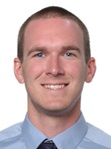 |
Aggression Aimed at Caregivers in Parkinson’s Linked to Patients’ Grief “This is an issue that we think is very much underrecognized,” Dr. Zachary Macchi, who led the study, said in a press release, adding that “this is a factor likely driving caregiver burden for some people.” Parkinson’s News Today, Nov. 9, 2022 |
 |
Mystery Solved? How Shingles Can Increase Stroke Risk The study’s corresponding author is Assistant Professor of Neurology, Dr. Andrew Bubak. “We now have to start thinking about infectious diseases a bit differently — once infection has resolved, disease is not over. Persistent exosomes may continue to trigger pathologies thought to be unrelated to, and distant from, the site of the original infection,” Bubak told MNT. Medical News Today, Nov. 4, 2022 |
 |
Should We Discontinue Medications in Older Patients With Multiple Sclerosis? Dr. John Corboy, Professor of Neurology and Medical Director of the Rocky Mountain MS Center, started the first trials, just recently completed, and discusses in this podcast. Medscape, Nov. 3, 2022 |
 |
Once that started to die down, RSV infections took off, said Dr. Kevin Messacar, an infectious disease specialist at Children’s Hospital Colorado [and associate professor of pediatrics and neurology at CU School of Medicine]. If a difficult flu season follows that, pediatric hospitals and units will be stretched in the way that adult hospitals were during COVID-19 surges, he said. Denver Post, Nov. 2, 2022 |
|
|
In a Year It Was Supposed to Flare, Polio-like Syndrome in Kids Doesn’t, Adding to Mystery Physicians who treat children who develop a strange polio-like syndrome known as acute flaccid myelitis had been steeling themselves this Fall for an onslaught of cases of the irreversible condition, which appears to be triggered by infection
with an enterovirus known as EV-D68. |
 |
Study Finds Link Between Shingles and Elevated Risk of Strokes Pharmacy Times, Nov. 1, 2022 Researchers Reveal Why Shingles Can Cause Strokes CU Anschutz Today, Oct. 27, 2022 “Most people know about the painful rash associated with shingles, but they may not know that the risk of stroke is elevated for a year after infection,” said the study’s lead author Dr. Andrew Bubak, Assistant Research Professor in the Department of Neurology at the University of Colorado School of Medicine. |
 |
Surge of Viruses Leaves Children’s Hospitals Scrambling to Free Up Beds and Find Room for Patients Pandemic ‘Immunity Gap’ Is Probably Behind Surge in RSV Cases |
 |
Gene Involved in Neuronal Structure and Function May Protect Against Alzheimer’s Disease The overexpression of a gene tied to cell division and the structure and function of neurons may prevent and protect against cognitive decline in both mice and humans with Alzheimer’s disease (AD), according to a new study by scientists at the University of Colorado Anschutz Medical Campus. CU Anschutz Today, Oct 25, 2022 |
 |
Why Seizures Are Often Hard to Diagnose Seizures can be hard to diagnose. In today’s Academic Minute, the University of Colorado’s Jacob Pellinen, MD determines why. Inside Higher Ed, Oct. 7, 2022 |
 |
Why You Should Think Acute Flaccid Myelitis, Not Just Polio: The Signs and Symptoms to Look For Kevin Messacar, MD, PhD said the polio case in New York should also alert clinicians to the possibility of AFM in general, which can be caused by multiple viruses, including poliovirus, other enteroviruses, and West Nile virus. Neurology Today, Oct. 6, 2022 |
 |
Experts Say Vaccines, Behavior Changes Worked as Colorado’s Monkeypox Cases Decline If the virus were to have jumped into a different social network — say, a prison or a child care center — there could have been a new surge in infections, said Dr. Daniel Pastula. Colorado Sun, Oct. 3, 2022 |
 |
CU Researcher Describes First Cases of Encephalomyelitis Resulting From Monkeypox Virus Brain Inflammation, Spinal Cord Lesions Emerge in U.S. Monkeypox Cases |
 |
CDC Warns About Enterovirus in Kids – and the Risk of Rare Paralysis That Can Follow STAT, Sept. 12, 2022 |
|
|
Monkeypox virus has the potential to be neuroinvasive based on animal models, case series from previous outbreaks, and preliminary reports currently under investigation, reported Drs. Kenneth Tyler and Daniel Pastula,
of the University of Colorado School of Medicine, in an overview published in Annals of Neurology. |
 |
Should Coloradans Worry about Polio? Depends on Whether They’re Vaccinated Could Polio Come Back? What to Know about the Virus |
 |
Risk Factors in Kids Linked to Stroke as Soon as 30s, 40s “While strokes in childhood and very early adulthood are not likely caused by atherosclerotic risk factors, it does look like these risk factors increase throughout early and young adulthood and become significant risk factors for stroke in the 30s and 40s,” noted lead author Sharon N. Poisson, MD, MAS, Associate Professor of Neurology. Medscape, August 12, 2022 |
 |
What Coloradans Need to Know About Monkeypox Dr. Daniel Pastula, Neuroinfectious Disease specialist and Associate Professor of Neurology: "Monkeypox is what we call a zoonotic disease, meaning it can be spread between animals and people. Back in 2003, a shipment of pet prairie dogs [which were housed with infected rodents imported from Ghana] caused an outbreak in the United States. Since then, it’s really only been identified in central or western Africa." 5280, August 11, 2022 |
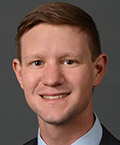

|
2 Common Psychiatric Drugs May Slow Progression of Alzheimer’s CU Anschutz Researchers Identify Drugs That Curb Alzheimer’s Symptoms New research at the CU Anschutz Medical Campus finds two FDA-approved drugs improve cognition in patients with Alzheimer’s disease. The surprising findings came after scientists screened hundreds of drugs to see which blocked formation of the amyloid plaques in the brain that lead to Alzheimer’s. Drs. Noah Johnson and Huntington Potter are trying to get to the root of what causes Alzheimer’s disease. |
 |
What Robin Williams’ Widow Wants You to Know about the Future of Lewy Body Dementia “We can’t undo changes that have already occurred,” said Dr. Samantha Holden, Associate Professor of Neurology and Director of the Memory Disorders Clinic at UCHealth University of Colorado Hospital. “But if we catch people early enough, can we prevent it from progressing?” CNN, July 4, 2022 |
 |
Social Media Swirls With Unsupported Claims About Cause of Justin and Hailey Bieber’s Medical Conditions “It’s purely speculative when you look at a single case report and try to conclude causation or even an association,” Dr. Maria Nagel, a neurologist and neurovirologist who studies VZV at the University of Colorado School of Medicine, told us. Saying there’s a link would be “like a few people reporting that they stubbed their toe after vaccination and we conclude that [the] vaccine causes stubbed toes.” FactCheck.org, June 22, 2022 |
|
|
No Clear Answers From MS Drug Discontinuation Trial “While we did not get a perfect answer either way, this is perhaps the most likely outcome we might have expected — a possible small amount of excess new MRI activity primarily, but of unclear clinical significance,” study co-investigator Dr. John Corboy, professor of neurology at the University of Colorado School of Medicine and director at the Rocky Mountain MS Center at the University of Colorado, told Medscape Medical News. Medscape, June 20, 2022 |
 |
Long COVID: Learning as We Go David Beckham, Associate Professor of Medicine, Immunology and microbiology, and Neurology, told Infectious Disease Special Edition that hospitalization from SARS-CoV-2, so far, is the most prominent predictor of which patients will be affected by long COVID. Infectious Disease Special Edition, June 1, 2022 |
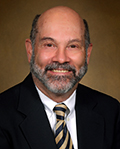 |
Enterovirus D68, Long Suspected Cause of Acute Flaccid Myelitis, Found in Anterior Horn Cells Kenneth Tyler, Professor and Chair of Neurology, previously created a mouse model in which EV-D68 caused AFM-like paralysis. In an interview with Neurology Today, he said he considered the paper to be important in establishing the cause of AFM. Neurology Today, May 27, 2022 |
 |
Neurologic Effects of Monkeypox Virus Remain Mild: What to Look for and How to Treat |
 |
You’ve Likely Heard of the Brain’s Gray Matter – Here’s Why the White Matter is Important, Too Dr. Christopher Filley, Professor of Neurology, has long studied white matter pathology. Located below the surface of the brain, even the most high-tech imaging can’t easily resolve its details. But recent findings, made possible by advancements in brain imaging and autopsy examinations, are beginning to show researchers how critical white matter is. The Conversation, May 5, 2022 |
|
|
CU Anschutz Scientists Spot Signs of Multiple Sclerosis Before Symptoms Start CU Anschutz researchers began studying patients with multiple sclerosis and their first-degree relatives in hopes of identifying disease before symptoms even strike. Now, they are doing just that, potentially altering lives. CU Anschutz Today, Mar. 22, 2022 |
|
|
Could Viruses, Olfactory ‘Railroad Track’ Unlock Alzheimer’s Puzzle? From a chance meeting at a 2018 conference, Maria Nagel, MD and Diego Restrepo, PhD are collaboratively investigating possible triggers and accelerants of early onset Alzheimer’s and potential therapies. They join Dr. Thomas Flaig, Vice Chancellor for Research, in a stimulating podcast discussion. CU Anschutz Today, Mar. 16, 2022 |
 |
How Can I Be a Better Caregiver for My Loved One with Alzheimer’s? Samantha Holden, MD, Director of the Memory Disorders Clinic at the CU Anschutz Alzheimer's and Cognition Center, provides guidance on how to care for your loved one with Alzheimer's. CU Anschutz Today, Feb. 7, 2022 |
 |
Young Women at Higher Risk for Stroke Than Male Peers: Study The study cannot pinpoint the reasons for the higher risk among young women, said researcher Dr. Sharon Poisson, Associate Professor of Neurology. However, she said, pregnancy is one likely contributor: Pregnancy-related conditions, including blood clots, high blood pressure and diabetes, can raise a woman's risk of stroke. HealthDay, Jan. 25, 2022 |
 |
Strong New Evidence Suggests a Virus Triggers Multiple Sclerosis “This is a very intriguing article that extends our understanding of the role of Epstein-Barr Virus (EBV) in MS development,” Dr. John Corboy, Neurologist and Co-director of the Rocky Mountain MS Center at the University of Colorado, told STAT. STAT, Jan. 13, 2022 |
| Faculty | Article |
 |
Pfizer Says Its COVID-19 Booster Protects Against Omicron Dr. David Beckham has been studying the variants in a biosafety lab on the University of Colorado Anschutz Medical Campus. He said the mutations on the omicron variant are allowing it to “sidestep” immune protections more than other variants. “Omicron has multiple mutations and a lot more mutations than any other variants that we’ve seen so far,” he said. “So for example, delta has a handful, six or so in this spike protein, and omicron has about 30.” Fox31, Dec. 8, 2021 |
 |
Coloradans Looking to KO Parkinson’s Find Refuge in the Boxing Ring Parkinson’s patients who show continuous improvement or stabilized motor scores also tend to show improvement in their exercise program, notes Dr. Jeanne Feuerstein, movement disorders specialist and Assistant Professor of Neurology. Colorado Sun, Nov. 18, 2021 |
 |
West Nile Virus Cases Climbing in Colorado The mosquito-borne illness is known to cause fever and headaches, and in severe cases, can cause neuroinvasive disease such as encephalitis, a brain infection, or meningitis, or death. Yet, 80% of those who contract the virus don’t show symptoms, according to Dr. Daniel Pastula, Associate Professor of Neurology, Medicine and Epidemiology at the University of Colorado School of Medicine and Colorado School of Public Health. Colorado Sun, Oct. 9, 2021 |
|
|
Can COVID-19 Boost Risk of Alzheimer’s Disease? Early Studies Look at Links Recent findings linking COVID-19 and Alzheimer’s disease have sparked concern among experts, taking the spotlight at the July Alzheimer’s Association International Conference in Denver and prompting an “urgent” call from the Alzheimer’s Disease International for “fast-tracking” research on the issue. CU Anschutz Today, Sept 29, 2021 |
 |
Can exercise help patients gain ground on Parkinson’s disease? The SPARX3 trial extends investigations of exercise’s ability to slow the progression of the debilitating movement disorder. “What I always say to my patients is I can give you medications that will make you function as well as you can, but the reason I’m doing it is so you can exercise,” Dr. Jeanne Feuerstein said. “That’s the key to actually modify the progression of the disease.” UCHealth Today, Sept. 28, 2021 |
 |
Research Shows Mobile Stroke Treatment Unit Saves Patients' Lives The New England Journal of Medicine has published the results of the BEST-MSU study. Data from patients treated in the UCHealth Mobile Stroke Treatment Unit (MSTU), just the third mobile stroke unit in the U.S. when it began making its urgent house calls in January 2016, informed the study; Dr. William Jones, the CU School of Medicine and UCHealth neurologist who championed the MSTU, is a coauthor. UCHealth Today, Sept. 8, 2021 Colorado Springs Gazette, Sept. 9, 2021 |
 |
Researchers Looking into Connection between COVID-19 and Alzheimer’s Huntington Potter, PhD, Professor of Neurology at CU Anschutz, says new research shows a connection between COVID-19 and Alzheimer's disease. 9News, Sept. 7, 2021 |
 |
Migraine: Not Just a Headache The first thing that neurologist and certified headache specialist Dr. Marius Birlea wants people to understand about a migraine is that the condition is a neurological disease. Steamboat Pilot & Today, Aug. 29, 2021 |
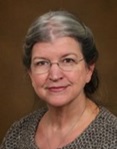 |
Exploring the Mystery of Non-epileptic Seizures |
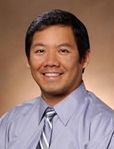 |
How Do Dogs Sniff Out Diseases? It’s not clear how our bodies make menthone, says Dr. Edward Maa, University of Colorado Neurologist, and most of the time, researchers don’t think of humans needing to produce any smells when in distress. “We don’t typically think of humans as needing alarm pheromones because we have speech,” Maa says. Discover, July 19, 2021 |
 |
Remote Deep-Brain Stimulation Programming Saves ‘Money and Miles’ for Patient with Parkinson’s Disease The newly approved Abbott system enables telehealth consultation and adjustment to deep-brain stimulation for Parkinson's disease, as administered by Dr. Drew Kern and colleagues. UCHealth Today, July 12, 2021 |
 |
COVID Protections Kept Other Viruses at Bay. Now They’re Back. “There’s nothing about enteroviruses that makes them love even years—they don’t have a lucky number,” says Dr. Kevin Messacar, Associate Professor of Pediatrics and Neurology at the University of Colorado and Children's Hospital Colorado, who was a coauthor on that March analysis. “The model for this whole family of viruses, which is well-described, would not predict that we would wait until 2022 for an outbreak because we missed a cycle. It would say we are continually growing the pool of susceptibles who haven’t seen that virus.” WIRED, July 6, 2021 |
 |
Excitement for All-Star Week Grows, As Well As Concern for the Delta Variant’s Spread “If you are not vaccinated, still wear a mask and avoid groups of large gatherings like the All-Star Game, because you would be at risk. There is going to be an unknown number of unvaccinated people that may or may not be infected with the virus,” said Dr. David Beckham, Neuro-Infectious Disease expert. Channel 7, June 30, 2021 |
 |
Neurologists See Few Risks, Many Benefits of COVID-19 Vaccines for Younger Adolescents For such youth, the strategy is to extend the interval between vaccination and infusion, said Dr. Teri Schreiner, Associate Professor of Pediatrics and Neurology. “For kids who are getting infusions of anti-B cell therapies, we recommend getting their second vaccination at least four weeks before infusion, or 12 weeks after the infusion,” Schreiner said. Neurology Today, June 17, 2021 |
 |
Newly Approved Alzheimer’s Drug Spurs Hope and Controversy CU Anschutz experts weigh in on first-of-its-kind therapy, and gear up to take part in further clinical studies. CU Anschutz Today, June 15, 2021 |
 |
What you need to know about the FDA-approved drug for Alzheimer’s “Usually FDA-approved drugs are covered by insurance and Medicare and Medicaid,” said Dr. Huntington Potter, Director of the University of Colorado Alzheimer’s and Cognition Center. Channel 7, June 9, 2021 |
 |
ALS Day is June 2nd “Cure sometimes, treat often, comfort always, especially as it relates to ALS because there isn’t a cure yet," said CU Medicine neurologist Dr. Laura Foster about ALS and how to help those with the disease. Major League Baseball has declared June 2nd as Lou Gehrig Day to help raise funds in the battle against ALS. CU Medicine-Care for U Newsletter, May 24, 2021 |
 |
15 Migraine Triggers You Need to Know About Stress is the No. 1 trigger for migraine, says Dr. Danielle Wilhour, Assistant Professor of Neurology. She points to past research in the journal Headache. Of 200 new migraine patients, 91 percent said they had at least one migraine trigger, and the most commonly reported (by 59 percent of respondents) was emotional stress. The Healthy, May 17, 2021 |
 |
‘We’re really in the early days’ of Understanding Neurological Issues with COVID-19 “For the U.S., we’re just a little bit over the one-year anniversary of our first cases,” Dr. Kenneth Tyler told Yahoo Finance. “When you start to talk about potential longer-term [effects] and what’s their natural history, you’ve got to realize we’re really in early days here and that some things may not be apparent for a while now.” Yahoo! Finance, May 5, 2021 |
 |
Highly Contagious Brazilian COVID Variant Confirmed in El Paso County The variant, first discovered in Brazil, is more likely to reinfect people who have already had COVID-19 compared to the original virus, said Dr. David Beckham, Associate Professor of Infectious Disease and Neurology at the University of Colorado. Colorado Springs Gazette, May 4, 2021 |
 |
Optune Device Extends Life Expectancy of Littleton Man with Brain Cancer “It’s an amazing technology,” said Dr. Doug Ney, Neuro-Oncologist at the CU Cancer Center. He says Optune produces alternating electrical fields that target dividing cancer cells in the brain. “They’re not allowed to grow. It sort of stops them in their tracks and then they die.” CBS4, Apr. 30, 2021 |
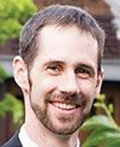 |
Five-Minute Digital Clock Test May Speed Early Alzheimer’s Diagnosis In an accompanying editorial, co-author Dr. Peter Pressman notes that in this “technological advance of the time-honored clock-drawing test, the use of a computerized pen allows analysis not only of the correctness of the face and hands of the clock but also of other, subtler features, such as movement and spatial patterns, thereby providing a much richer dataset than the conventional clock-drawing scoring schema.” Medscape, Apr. 16, 2021 |
 |
Variant Cases Now Make Up More Than Half of New Colorado Covid-19 Cases “The important part of tracking variants is to understand what variants are circulating, which ones are taking over. We know that this happens, all these viruses do this. Eventually, a variant takes over, it’s called a ‘replacement strain,’” said Dr. David Beckham, infectious disease physician, virologist and associate professor of medicine and neurology at CU School of Medicine.9News, Apr. 14, 2021 |
 |
To Defeat a Foe Like Parkinson’s, We Must Expose Its Secrets This was a wake-up call to yet another possible nefarious side-effect of the virus. In a commentary examining the findings, Van Andel Institute’s Dr. Patrik Brundin, along with Dr. Avindra Nath of the National Institute of Neurological Disorders and Stroke, and Dr. J. David Beckham of University of Colorado, said the cases suggest that COVID-19 may be part of a “perfect storm” for Parkinson’s disease.Grand Rapids Business Journal, Apr. 2, 2021 |
 |
Cognition Help for Alzheimer’s Patients CU Anschutz Today, Mar. 25, 2021 |
 |
Time to Rethink Prognosis After Prolonged Unconsciousness? “The results of our study, we think, show that caution is warranted in making decisions to withdraw or hold care in patients with these serious brain injuries,” according to lead author Dr. Robert G. Kowalski, Department of Neurology. “A meaningful recovery is possible, even when loss of consciousness occurs after the brain injury." Medscape, March 4, 2021 |
 |
Loss of Smell Lingers Post COVID Also commenting for Medscape Medical News, Dr. Kenneth Tyler, Professor of Neurology and a fellow of the American Academy of Neurology, said the study was relatively large and the results “interesting.” Although it “provides more evidence there’s a subset of patients with symptoms even well past the acute phase” of COVID, the results are “mostly confirmatory” and include “nothing super surprising,” said Tyler. Medscape, Feb. 23, 2021 |
 |
Writing Styles Linked to Alzheimer’s Development Later in Life “Certain words that we use every day in speech, like: ‘a’, ‘and’ – short little words began to fade away, drop out, as speech became more simple over time in writing,” said Dr. Peter Pressman, Assistant Professor of Neurology. Fox31, Feb. 11, 2021 |
 |
Coronavirus May Infect Key Brain Cells, Causing Neurons To Die Given the stark differences between each arm of the study, “I think it is difficult to compare the mild disease portion of the study to the severe disease cohort,” said Dr. Maria Nagel, Professor of Neurology and Ophthalmology at the University of Colorado School of Medicine, who was not involved in the study. MSN, Feb. 10, 2021 |
 |
CU Anschutz Experts Break COVID-19 Effects Down by Body Part From foggy mind to ‘COVID toe,’ observations abound, but causal evidence still lags. Dr. Kenneth Tyler addresses impacts to the Central Nervous System. CU Anschutz Today, Jan. 27, 2021 |
 |
What You Need to Know About CBD Side Effects CBD that you buy at the drugstore and CBD you get at a medical marijuana dispensary are not the same either, which means the side effects could be different, points out Dr. Maureen Leehey, Director of the Movement Disorders Center at the University of Colorado School of Medicine. HealthCentral, Jan. 25, 2021 |
 |
Pasadena Library’s STEAM Program Illustrates the Strength of Soap Against Viruses Dr. Daniel Pastula, neuro-infectious disease expert at UCHealth, the University of Colorado’s non-profit health care system, says soap – even the cheap generic kind – actually works better than hand sanitizer to remove the coronavirus. Pasadena Now, Jan. 16, 2021 |
 |
How Long After a COVID Diagnosis Should I Get Vaccinated? Neurovirologists Address This and Other Uncharted Scenarios on the COVID Vaccine |
| Faculty | Article |
 |
CU Anschutz Experts Break COVID-19 Effects Down by Body Part From foggy mind to ‘COVID toe,’ observations abound, but causal evidence still lags. Dr. Kenneth Tyler addresses impacts to the Central Nervous System. CU Anschutz Today, Jan. 27, 2021 |
 |
What You Need to Know About CBD Side Effects CBD that you buy at the drugstore and CBD you get at a medical marijuana dispensary are not the same either, which means the side effects could be different, points out Dr. Maureen Leehey, Director of the Movement Disorders Center at the University of Colorado School of Medicine. HealthCentral, Jan. 25, 2021 |
 |
Pasadena Library’s STEAM Program Illustrates the Strength of Soap Against Viruses Dr. Daniel Pastula, neuro-infectious disease expert at UCHealth, the University of Colorado’s non-profit health care system, says soap – even the cheap generic kind – actually works better than hand sanitizer to remove the coronavirus. Pasadena Now, Jan. 16, 2021 |
 |
How Long After a COVID Diagnosis Should I Get Vaccinated? Neurovirologists Address This and Other Uncharted Scenarios on the COVID Vaccine |
 |
DBS for Parkinson’s: Nothing Short of a ‘Miracle’ for Young Rocket Scientist At 35, he had a wife, three young children – and Parkinson’s. Under the care of Dr. Drew Kern and team, Deep Brain Stimulation helped this young rocket scientist overcome a perpetual "fog." Now, he is laughing and playing with his children again. UCHealth Today, Dec. 23, 2020 |
 |
COVID-19 Neurologic Fallout Not Limited to the Severely Ill Commenting on the findings, Dr. Kenneth Tyler, Chair of Neurology, University of Colorado School of Medicine, noted that this is one of the larger series published to date of the neurologic complications associated with COVID-19, and the first to come from a U.S. safety-net hospital in a large metropolitan area. Medscape, Dec. 14, 2020 |
 |
Washington Ski Resorts Opening with Covid Rules Dr. Daniel Pastula said the outdoor element of ski trips is generally safe during a pandemic, but the virus could spread if people congregate in places such as lift lines, lodges, restaurants and bathrooms. MyNorthwest, Nov. 26, 2020 |
 |
Coloradans Turning to Air Purifiers as Covid Fighting Tool “Air purifiers with a HEPA filter we think are probably helpful in a lot of situations,” said Dr. Daniel Pastula, Neuroinfectious Disease Physician with UCHealth. Fox31, Nov. 26, 2020 |
 |
Incidence of Stroke, But Not MI, Increasing in Young People “It has been a mystery why the number of strokes in young adults has been growing,” Dr. Michelle Leppert, Assistant Professor of Neurology, told Medscape Medical News. “This is a trend seen worldwide.” Medscape, Nov. 26, 2020 |
 |
The Jury Is Still Out on COVID-19 Risk for Patients With MS Patients with multiple sclerosis may not have an increased risk of contracting coronavirus disease 2019, but their risks and outcomes are the targets of ongoing investigation, explained Dr. John Corboy, Professor of Neurology and co-director of the Rocky Mountain MS Center at Anschutz Medical Campus. AJMC, Nov. 23, 2020 |
 |
Free from epileptic seizures after 33 years Clay Phillips, a patient of epileptologist Dr. Mark Spitz, suffered for more than three decades. Then, thanks to medical advances and a breakthrough cure, he is living and driving again. UCHealth Today, Nov. 18, 2020 |
 |
CU Joins Trial Network Taking Aim at Rare Disease The University of Colorado is one of four sites recently named to join a research consortium dedicated to finding treatments for a rare, debilitating neuromuscular disease called facioscapulohumeral muscular dystrophy, or FSHD. Dr. Matthew Wicklund,
director of the Neuromuscular Section of the UCHealth Neurosciences Center, says FSHD patients in Colorado and the Rocky Mountain region will benefit from CU joining the Clinical Trial Research Network. |
 |
More Coloradans Are Dying From Alzheimer’s Disease During Pandemic As Social Isolation Takes Its Toll Alzheimer’s and dementia often progress slowly over a period of years, but if a person’s brain is stressed, they can experience “dips” and will have a harder time bouncing back than someone without a cognitive disorder, said Dr. Samantha Holden, Medical Director of the CU School of Medicine’s Neurobehavior and Memory Disorders Clinic. Denver Post, Nov. 1, 2020 |
 |
Delayed Diagnosis of Focal Nonmotor Seizures Represents ‘Significant Treatment Gap’ “This research was prompted by a clinical observation that many patients with focal epilepsy experience delays to diagnosis,” Dr. Jacob Pellinen, Assistant Professor of Neurology at the University of Colorado School of Medicine, told Healio Neurology. Healio, Oct. 29, 2020 |
 |
Car Accidents Common with Undetected Epilepsy Among 246 focal epilepsy patients with subtle, non-motor seizures, median time to diagnosis from their first reported seizure was 616 days, reported Dr. Jacob Pellinen of the University of Colorado School of Medicine, and co-authors. Subtle seizures may include brief hallucinations or déjà vu. MedPage Today, Oct. 20, 2020 |
 |
U.S. Resorts Adapt to New Normal of Skiing Amid Pandemic Dr. Daniel Pastula, CU School of Medicine Neuroinfectious Disease physician, said the outdoor element of ski trips is generally safe during a pandemic, but the virus could spread if people congregate in places such as lift lines, lodges, restaurants and bathrooms. “I think you can ski smartly and safely. Again, not completely eliminating the risk, but really reducing it,” he said. Minneapolis Star-Tribune, Oct. 17, 2020 |
 |
Why Disease-Modifying Therapy Efficacy Varies With Age Immunopathology changes with age, so older individuals with multiple sclerosis need medications that focus on effects inside the nervous system, explained Dr. John Corboy, Professor of Neurology and Co-director of the Rocky Mountain MS Center. American Journal of Managed Care, Oct. 9, 2020 |
 |
Promising Alzheimer’s Trials, Treatments in Process, and Potential Therapy Link to COVID-19 “We proposed in a paper published in F1000 that GM-CSF Leukine would be a treatment for COVID-19. The idea was based on some preliminary work with Dr. Ken Tyler's lab showing that GM-CSF prevented the death of mice infected
with West Nile Virus,” reported Dr. Huntington Potter. “We made a leap to suggest…that this natural protein might be a treatment for COVID-19. And there are now at least two clinical trials being
carried out with GM-CSF treatment for COVID-19, one in Belgium and one in Singapore. One would never necessarily have thought that all of our work on Alzheimer's disease would give us an insight into how to treat COVID-19, but it did.
That's one of the reasons it's so great to be in a university setting where ideas can be tested by essentially moving to the fifth floor from the fourth floor of our research building.” |
 |
Young Women May Face Greater Stroke Risk Than Young Men “We have this sense of security that women don’t have as many strokes because estrogen in premenopausal women can be protective for cardiovascular events, but that’s a false assumption,” said the study’s lead author, Dr. Michelle Leppert, assistant professor of neurology at University of Colorado School of Medicine. Herald Review (Big Rapids, Mich.), Sept. 18, 2020 |
 |
The New Coronavirus Can Infect Brain Cells, Study Finds “This study is the first to do an extensive analysis of SARS-CoV-2 [brain] infection using three models,” said Dr. Maria Nagel, professor of neurology and ophthalmology at the University of Colorado School of Medicine, who was not involved in the study. LiveScience, Sept. 13, 2020 |
 |
Research About Stopping Disease-Modifying Therapies for MS Do patients with multiple sclerosis who have been on disease-modifying therapies (DMTs) for decades need to keep taking them? Dr. John Corboy, professor of neurology, University of Colorado Denver, School of Medicine, and co-director of the Rocky Mountain MS Center at Anschutz Medical Campus, explains what is known about this area. AJMC, Sept. 12, 2020 |
|
|
The Aging Brain: Exploring the Connection Between Neurology and Elevation When it comes to looking at the potential correlation between living at high elevation and the risk for dementia-inducing diseases, Drs. Huntington Potter and Peter Pressman of the Alzheimer’s and Cognition Center said it would take great effort, time and funding to research. Summit Daily News, Sept. 10, 2020 |
 |
Long After the Fire of a Covid-19 Infection, Mental and Neurological Effects Can Still Smolder “It’s sort of like you’re trying to put out the fire and then a little bit later, you go look at the nervous system as the embers,” said Dr. Victoria Pelak, Professor of Neurology and Ophthalmology. “Because you are so concerned with the raging fire, you haven’t really been able to pay attention to the nervous system as much as you normally would.” STAT, Aug. 12, 2020 |
|
|
CU Anschutz Researchers Win NIH Grant to Study COVID-19 Impact on Sense of Smell “The virus often starts in the nose before making its way to the lungs,” said Diego Restrepo, PhD, Professor of cell and developmental biology, who will co-investigate with Maria Nagel, MD, Professor of Neurology and Ophthalmology. “We think this may spark an inflammatory response that releases cytokines which in turn silence olfactory sensory neurons in the nose.” CU Anschutz Today, July 21, 2020 |
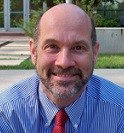 | Three Stages to COVID-19 Brain Damage, New Review Suggests Dr. Kenneth Tyler, Chair of the Department of Neurology at the University of Colorado School of Medicine, disagreed that all hospitalized patients with COVID-19 should routinely receive an MRI. “Whenever you are using a piece of equipment on patients who are COVID-19 infected, you risk introducing the infection to uninfected patients." Medscape, June 29, 2020 |
 |
Does the Immune System Play a Role in Parkinson's Disease? “It has long been suspected that immune alterations are an important part of the development of PD,” says Dr. Maureen Leehey, Professor of Neurology at the University of Colorado School of Medicine. Health Central, June 8, 2020 |
 | What to Know Before Heading to an Open Beach This Summer “It’s really the close contact with people – whether in the water or on land – that’s the concern,” Dr. Daniel Pastula, neuro-infectious disease expert and Associate Professor of Neurology, said in a recent report by UCHealth. Newsweek, May 22, 2020 |
 |
COVID 19: What Other Respiratory Viruses Can Reveal About Neurologic Symptoms Kenneth L. Tyler, Louise Baum Endowed Professor and Chair of Neurology at University of Colorado School of Medicine, said he tends to think of the potential neurologic impacts of CoV-2 as falling into one of three broad categories. Neurology Today, May 21, 2020 Inflamed brains, toe rashes, strokes: Why COVID-19’s weirdest symptoms are only emerging now “Almost all the [neurological] things we’re seeing now with COVID-19 are things you might have predicted would have happened,” says Kenneth Tyler, chairman of the department of neurology at the University of Colorado School of Medicine and a fellow of the American Academy of Neurology. National Geographic, May 21, 2020 |
 |
Neuropalliative Care During COVID-19 – How Clinicians Help Patients and Families Cope with Isolation, Fear, and Life-Limiting Illness “It’s like a modern version of an old-fashioned home visit,” said Christina L. Vaughan, associate professor and chief of the division of neuropalliative care in the department of neurology at the University of Colorado, Anschutz Medical Campus. “This has really sparked a lot of conversation. So much of palliative care is understanding someone’s story and what is important to them.” Neurology Today, May 18, 2020 |
|
|
The COVID-19 Life: On Juggling Young Children and Telemedicine Amanda L. Piquet, assistant professor of neurology at the University of Colorado School of Medicine, said it was after the first day that the five weeks of “stay-at-home” restrictions had been lifted that she realized she really needed a vacation. Dr. Piquet, who has a 4-year-old and an 8-month-old child, is a neurohospitalist and works part-time in the hospital where she has inpatient duties. Samantha K. Holden, assistant professor of neurology at the University of Colorado School of Medicine, encountered her first work-family challenge during her first week of full-time telemedicine at home. Dr. Holden had asked an older patient to walk around his room so she could examine his gait—when all of a sudden, a little 4-year-old face appeared behind her on the screen. Neurology Today, May 5, 2020 |
 |
Coronavirus in Context: Neurological Effects of COVID-19 Coronavirus in Context Video Series, with WebMD’s Chief Medical Officer, John Whyte, MD, MPH, who discusses neurological effects of COVID-19 with Kenneth Tyler, department chair of neurology at University of Colorado School of Medicine. WebMD, May 5, 2020 |
 |
The Great Invader: How COVID-19 Attacks Every Organ The brain and nerves may also fall prey to direct attack. Dr. Kenmeth Tyler, Chair of the Department of Neurology, cautions that direct central nervous system (CNS) attack is still being worked out at this time. There are many routes a virus could take to invade the CNS. Medscape, April 23, 2020
|
 |
Do coronavirus symptoms include a ‘fizzing,’ tingling or burning sensation? Other coronaviruses that affect humans can invade the central nervous system, so it makes sense COVID-19 may have neurologic manifestations, Dr. Kenneth Tyler, chair of Neurology at University of Colorado School of Medicine, told Neurology Today, a publication of the American Academy of Neurology. Neurology Today, April 13, 2020 |
 |
An unintended, yet still dangerous, COVID-19 impact: Those with life-threatening illness avoiding ER
“Time is really of the essence,” said Dr. Michelle Leppert, Assistant Professor of Neurology, who treated a stroke patient. “This was true before COVID. And the faster we can get a patient seen and get care to them, the
better the outcome is.” Channel 7, April 14, 2020 |
 |
Why Do Some People Get Sicker? Infectious disease expert Dr. Daniel Pastula says viral dose could matter — a
lot. “The lower the viral dose that you may get, we do think that there’s a better chance for your immune system to recognize what’s going on and fight it off before it causes problems,” he told CBS4’s
Alan Gionet.
CBS4, April 7, 2020 |
 |
The Spread of COVID-19: Questions Raised, Some Answered by Neuroinfectious Disease Experts Kenneth L. Tyler, Louis Baum Endowed Professor and Chair of Neurology at University of
Colorado School of Medicine, noted that earlier this year a report from three COVID-19-designated hospitals in Wuhan, China, indicated that more than one-third of coronavirus patients had some type of neurologic symptom, including
altered consciousness, evidence of skeletal muscle damage, and acute cerebrovascular disease.
Neurology Today, April 2, 2020 |
 |
Why soap and water work better than hand sanitizer to remove the coronavirus. Good, old-fashioned soap, even if it’s the cheap, generic kind, works better than hand sanitizer to remove the coronavirus. It’s all about chemistry, says Dr. Daniel Pastula. UCHealth Today, March 30, 2020 |
 |
What Neurologists Can Expect from COVID-19 Medscape recently spoke with central nervous system infection specialist and chair of University of Colorado's neurology department, Dr. Kenneth Tyler,
about what implications the new coronavirus could have on patients and practice. Medscape, March 26, 2020 |
 |
Coronavirus: Why has COVID-19 caused so many deaths worldwide? Your risk revealed Dr. Daniel Pastula, UCHealth University of Colorado Hospital and CU School of Medicine,
explained how the virus could easily infect the human body, as we have no pre-existing defences against it, adding: “Our bodies don’t immediately recognise it as a dangerous intruder.” Express (London), March 20, 2020 |
 |
Dementia has no cure, but researchers and caregivers have found ways to improve quality of life “I get about 90-95 percent of my diagnosis from talking to them, getting to know them,” Dr. Samantha Holden,
a behavioral neurologist with University of Colorado Health and Assistant Professor of neurology at CU School of Medicine, said. “Even though we can’t cure these things, we can definitely manage them and make sure we’re
improving people’s quality of life.” Channel 7, March 20, 2020 |
 |
Colorado governor closes bars, restaurants, theaters and gyms in fight against coronavirus Hospitals in mountain communities, where the virus is spreading more widely, already are running short of protective gear and other resources to care for a higher volume of patients, said Dr. Daniel Pastula,
a University of Colorado School of Medicine infectious disease specialist who visited some of the harder-hit communities. Denver Post, March 16, 2020 |
 |
8 Early Symptoms of Multiple Sclerosis Women in Their 20s and 30s Should Know Typically, MS follows a classic relapse/remission pattern. “You get this burst of inflammation in a spot in the brain, and the inflammation runs its course,” Dr. Timothy Vollmer,
a neurologist at the University of Colorado who specializes in multiple sclerosis, tells SELF. After this “attack,” you then “recover,” and the symptoms retreat for a time period until the next attack. Self, March 1, 2020 |
 |
The study “raises the question of whether there is such a thing as HE,” commented Kenneth L. Tyler,
Louise Baum Endowed Professor and Chair of Neurology at the University of Colorado School of Medicine. “There aren't any validated diagnostic criteria, and the breadth of clinical presentations and lab criteria across patients
labeled with it is pretty broad.” Neurology Today, Feb 20, 2020 |
 |
Outpatient Palliative Care Improves Parkinson Outcomes As reported in the February 10, 2020 issue of JAMA Neurology, Dr. Benzi Kluger and School of Medicine colleagues evaluated whether
outpatient palliative care is associated with improvements in patient-centered outcomes compared with standard care among 210 patients with Parkinson disease and related disorders and 175 caregivers. Physician’s Weekly, Feb 10, 2020 |
 |
From epilepsy nightmare to 'Neuro Ninja' Kyle Parker convulsed so violently he broke his back in four places. Then he opted for an innovative brain surgery and he’s 100% seizure free. Cornelia Drees, MD,
Associate Professor of Neurology, describes the laser ablation surgery that ended Kyle's unpredictable seizures. UCHealth Today, Jan. 22, 2020 |
 |
Healthy babies exposed to Zika in the womb may suffer developmental delays Because there was variability between individuals, “looking at a population enables one to see overall trends,” says neurologist Ken Tyler, MD,
Professor and Chair of Neurology of the CU School of Medicine, who was not involved in the research. “We need to aggressively follow all children whose mothers were exposed to Zika during pregnancy to understand the nature of
their neurological delays.” Science News, Jan. 6, 2020 |





















